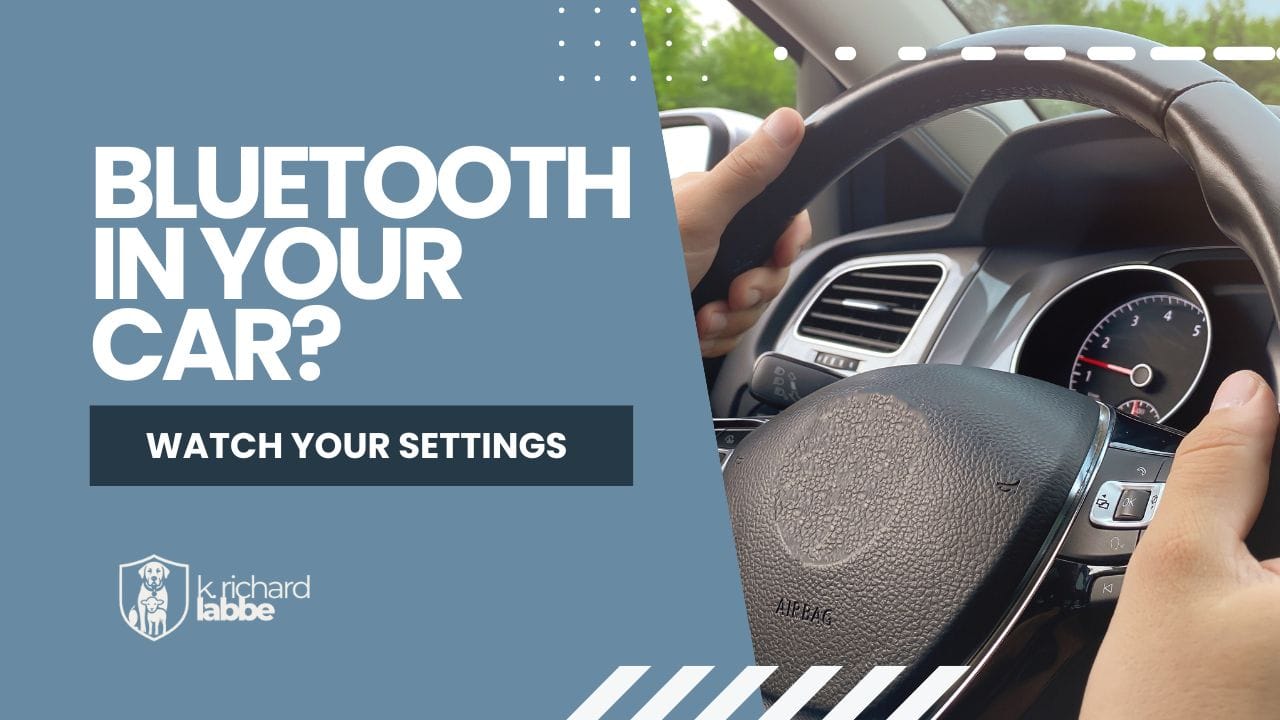Bluetooth in Your Car? Watch Your Settings
If you’ve ever synced your phone with your car’s Bluetooth, you might have shared more than just a playlist. Many vehicles quietly store bits of personal data—like contacts, call logs, and recent text messages—to support hands-free features.

If you’ve ever synced your phone with your car’s Bluetooth, you might have shared more than just a playlist. Many vehicles quietly store bits of personal data—like contacts, call logs, and recent text messages—to support hands-free features.
That’s not necessarily a problem—until you rent a car, sell a vehicle, or share it with someone else. Suddenly, that data can linger where you no longer have control.
Let’s take a closer look at what’s really happening, why it matters, and how to protect your digital life behind the wheel.
What Gets Stored When You Sync Your Phone?
When you connect your smartphone via Bluetooth, Android Auto, or Apple CarPlay, your car’s infotainment system may request access to:
- Your contact list (for voice dialing)
- Your recent call logs
- In some cases, recent text messages (for read-aloud functionality)
- Your device ID or name
- App permissions or login status for apps like Spotify, Google Maps, or messaging platforms
This is usually to improve convenience—not to spy on you. But the system doesn’t always forget what it learns, especially if you don’t manually clear the connection later.
Why It Matters
This kind of data retention isn’t deeply sensitive on its own. But it can become a privacy issue when:
- You sell, trade in, or donate your vehicle without clearing stored info
- You rent or borrow a car and sync your phone for temporary use
- You buy a used vehicle with another person’s data still inside
In fact, a 2021 study from Privacy4Cars found that over 80% of used vehicles still contained leftover personal data—including phone identifiers, synced contacts, and other traceable info【Privacy4Cars Study, 2021】.
These systems are not typically encrypted, and many don’t use user profiles or passcodes—so anyone with physical access to the screen can view or extract what’s been saved.
Is it likely someone will use this data maliciously? Probably not. But is it worth cleaning up? Absolutely.
What to Do About It
Here’s a calm, practical checklist you can use for yourself—or pass along to a young driver, recent grad, or anyone who rents or trades cars often.
Before Selling, Donating, or Returning a Vehicle:
- Unpair your phone via the Bluetooth settings
- Delete your device from the system menu
- Look for options to “Clear Personal Data” or perform a factory reset
- Log out of any connected apps (Spotify, Google, etc.)
When Renting a Car:
- Avoid syncing your entire phone if you can
- If you do pair it, deny access to contacts or messages when prompted
- Delete your device before turning the car back in
After Buying a Used Car:
- Explore the infotainment system for old device names or contacts
- Perform a full system reset to wipe lingering data
- Reconnect only what you actually use—and know how to remove it later
A Note on New Drivers and Graduates
Many young adults are heading off to college or work with hand-me-down vehicles or new tech-enabled cars. It’s a great time to talk through digital housekeeping in the car—just like setting good phone or Wi-Fi habits.
This isn’t about paranoia. It’s about stewardship.
We lock our homes, guard our passwords, and watch for phishing emails. Let’s add one more quiet habit to the list: clearing digital traces when we step out of a vehicle for the last time.
Stay safe. Be ready. Online and off.
Every effort has been made to ensure the accuracy and reliability of the information presented in this material. However, Labbe Media, LLC does not assume liability for any errors, omissions, or discrepancies. The content is provided for informational and educational purposes only and should not be considered professional advice. Viewers are encouraged to verify any information before making decisions or taking actions based on it.
